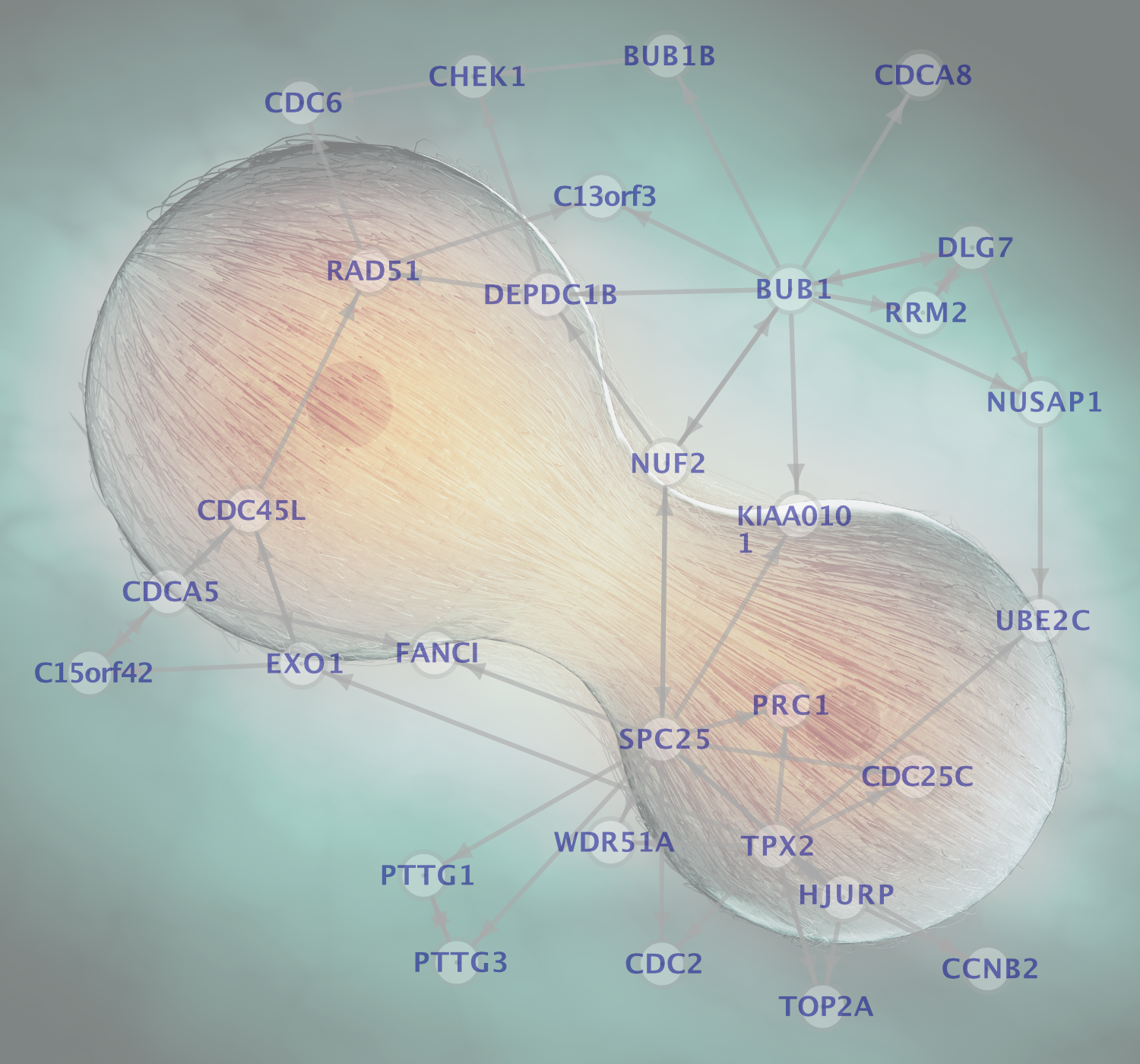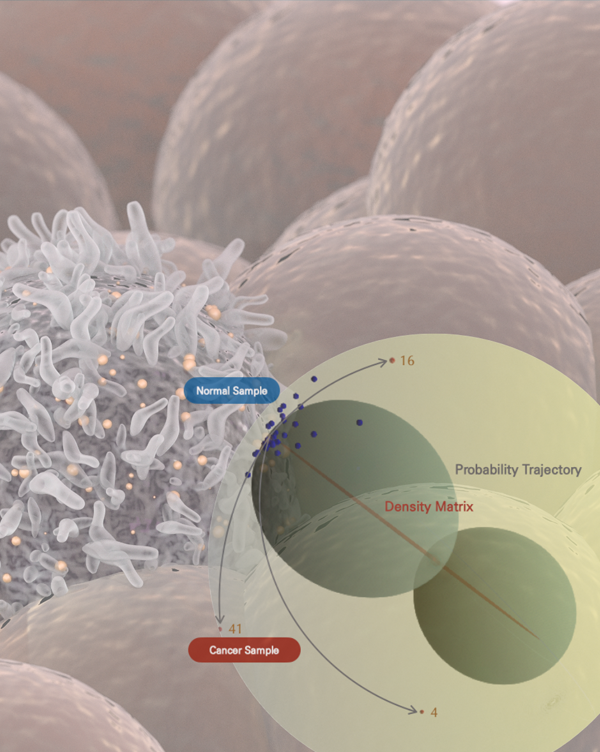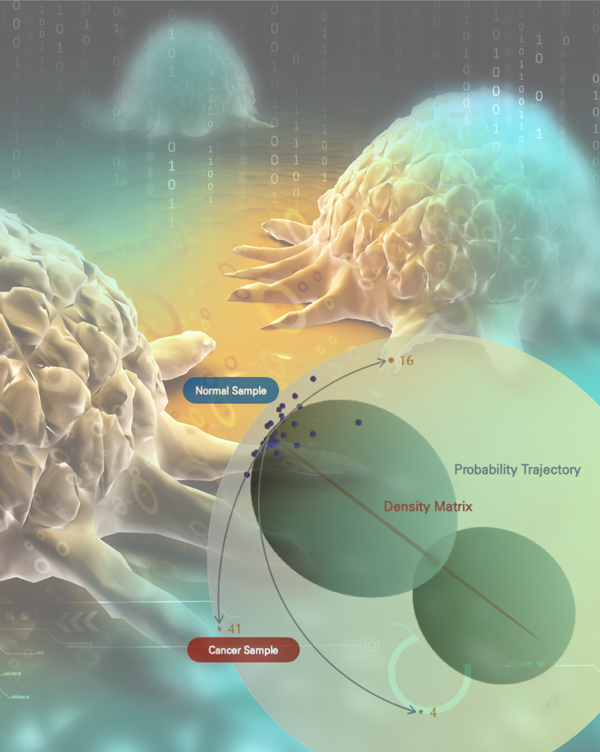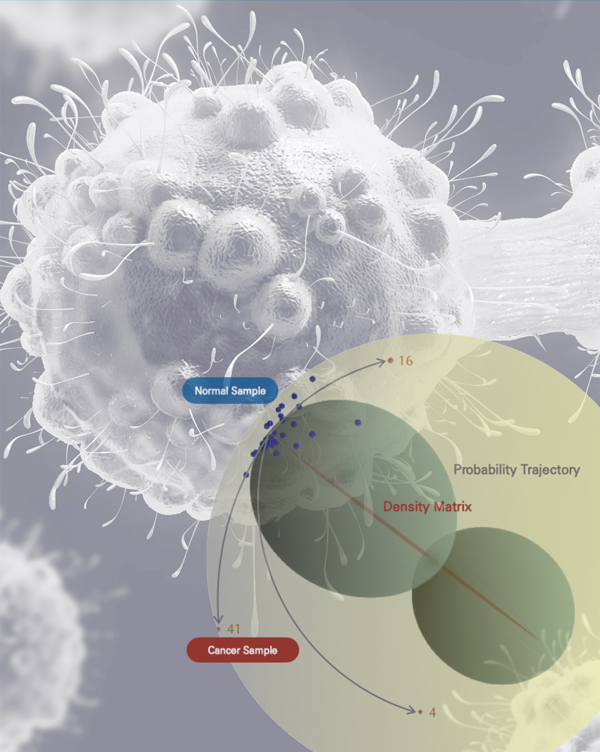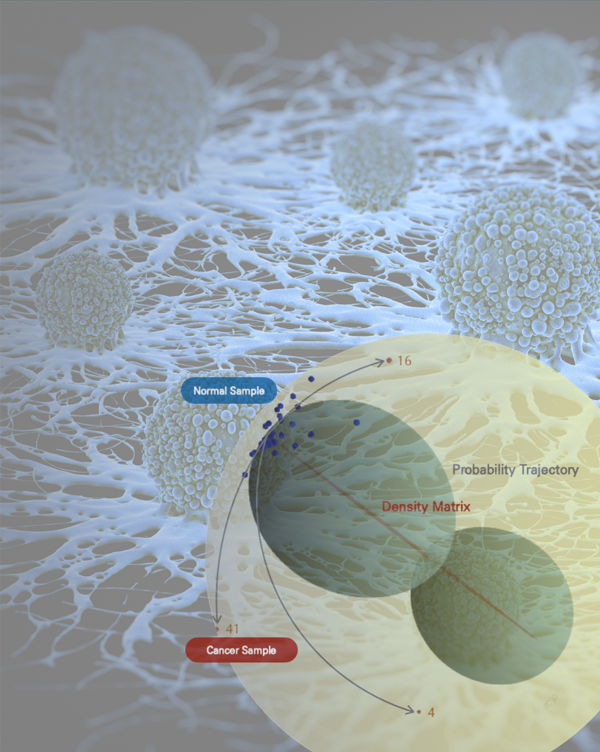What is cancer?
A eukaryotic cell has evolved to have robustness. The genome maintains cellular properties against environmental challenges by operating the proteome. Cancer is a state in which the genome has lost the ability to operate the proteome, and the proteome seizes the initiative.
Genomic Modules
Cells perform the tasks assigned by the living body. It is generally rare that the tasks are directly related to the functions of individual genes. Instead, a task is executed by multiple genes that construct a system in most cases. These tasks are related to exhibiting life phenomena of higher order. We, therefore, define the group of genes that make up such a system as a genomic module, the functional unit of the genome.
Modular Sample Probability
Given the density matrix of a genomic module separated from a group of reference tissue samples, the degree to which a tissue sample deviates from the reference is calculated as a probability.







